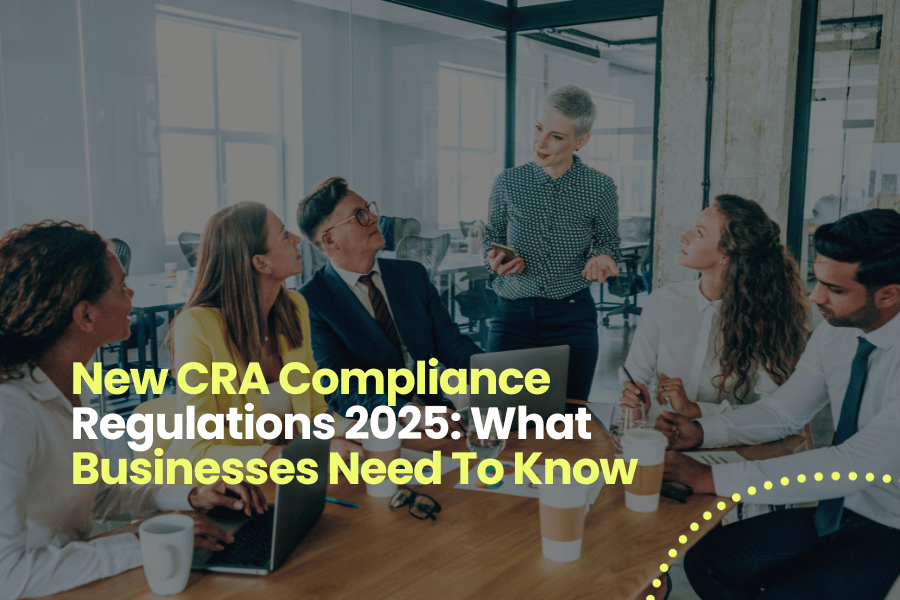
As a business owner in Canada, staying compliant with the Canada Revenue Agency (CRA) is crucial. However, CRA compliance can often feel like a moving target due to frequent updates in tax laws and reporting requirements. The complexity of these changes can lead to errors, penalties, and unnecessary stress for small and medium-sized enterprises (SMEs). In this guide, we will break down the latest CRA compliance updates, common mistakes SMEs make, and strategies to stay compliant with minimal hassle.
Recent CRA Compliance Updates: What You Need to Know
Keeping up with CRA compliance updates is vital for business owners to avoid costly penalties and disruptions. Some of the most recent changes include:
1. Changes in Tax Reporting Requirements
- The CRA has introduced stricter regulations around income reporting for businesses.
- Expanded requirements for digital tax submissions and electronic receipts.
- Enhanced scrutiny of foreign income and offshore accounts.
2. Digital Tax Requirements
- As of 2025, the CRA mandates that businesses earning over $50,000 annually must file taxes electronically.
- New electronic audit requirements for tax filings.
- CRA is shifting towards automation and AI-driven compliance checks.
3. Updated Audit Procedures
- Increased frequency of random audits, especially for SMEs.
- Businesses must now maintain real-time financial records for review.
- More stringent verification of HST/GST claims and deductions.
If you’ve received a notice of compliance CRA email, it’s essential to act promptly to avoid penalties or further audits. But what is a notice of compliance CRA, and why is it important? We’ll dive deeper into this below.
Common Compliance Mistakes SMEs Make (And How to Avoid Them)
1. Misreporting Income
Incorrectly reporting business income is one of the biggest compliance mistakes SMEs make. This can lead to an audit and additional tax liabilities.
2. Missing Deadlines
Late tax filings, whether for income tax or HST/GST, can result in penalties and interest charges.
3. Incorrect HST/GST Filings
Improper HST calculations, missing input tax credits, and incorrect filings can trigger compliance issues with the CRA.
Avoiding these mistakes starts with adopting better financial management strategies. Let’s explore some practical solutions to keep your business compliant.
How to Stay Compliant Without the Headache
1. Automating Bookkeeping
Investing in cloud-based bookkeeping software like QuickBooks, Xero, or FreshBooks can streamline tax reporting and compliance. These tools:
- Automatically categorize expenses.
- Generate real-time financial reports.
- Ensure accurate tax calculations and deductions.
2. Keeping Updated Financial Records
- Maintain organized records of income, expenses, and tax filings.
- Store digital copies of invoices and receipts for CRA verification.
- Regularly review financial statements for discrepancies.
3. Conducting Regular Tax Assessments
- Quarterly tax assessments can prevent surprises during tax season.
- Work with an accountant to ensure compliance with new CRA policies.
- Prepare for audits by keeping all necessary documentation readily available.
By implementing these practices, SMEs can significantly reduce the risk of receiving a CRA notice of compliance or facing penalties.
What is a Notice of Compliance CRA?
A CRA notice of compliance is an official document sent by the CRA when they require businesses to correct or verify tax-related issues. Receiving a notice of compliance CRA email doesn’t always mean an audit, but it does require timely action to prevent penalties.
What is the Purpose of a CRA Notice of Compliance?
The purpose of a CRA notice of compliance is to:
- Notify businesses of discrepancies in tax filings.
- Request additional documentation for verification.
- Ensure businesses adhere to updated tax laws and regulations.
If you receive a compliance certificate CRA, it indicates that your business has met the CRA’s compliance requirements, which can be beneficial for maintaining a strong financial reputation.
How ClearWealth Can Help Your Business Stay CRA Compliant
Navigating CRA compliance doesn’t have to be overwhelming. ClearWealth Accounting Advisors offers expert accounting services to help SMEs stay compliant and financially secure. Our services include:
1. Tax Filing and CRA Compliance Support
- Expert tax preparation and submission.
- Ensuring accurate income reporting and HST/GST compliance.
- Assistance with digital tax requirements.
2. CRA Dispute Resolution and Audit Support
- Representation in CRA audits and disputes.
- Negotiating tax settlements and payment plans.
- Resolving tax discrepancies efficiently.
3. HST/GST Compliance Assistance
- Ensuring proper HST/GST calculations.
- Managing input tax credits for accurate filings.
- Avoiding costly mistakes in HST/GST submissions.
4. Automated Bookkeeping and Financial Management
- Cloud-based bookkeeping for real-time financial tracking.
- Regular financial statement preparation.
- Budgeting and forecasting for future financial planning.
Take the Stress Out of CRA Compliance with ClearWealth
Staying compliant with CRA regulations is essential for any business, but it doesn’t have to be a burden. By automating bookkeeping, keeping detailed financial records, and conducting regular tax assessments, SMEs can avoid costly mistakes and penalties.
ClearWealth Accounting Advisors provides expert support for tax filing, CRA dispute resolution, and HST/GST compliance. Let us handle the complexities of CRA regulations while you focus on growing your business. Partner with ClearWealth for Stress-Free CRA Compliance! Are you seeking a trusted partner to manage your accounting and tax compliance needs? ClearWealth Accounting Advisors offers tailored solutions to help businesses stay ahead of CRA regulations.

